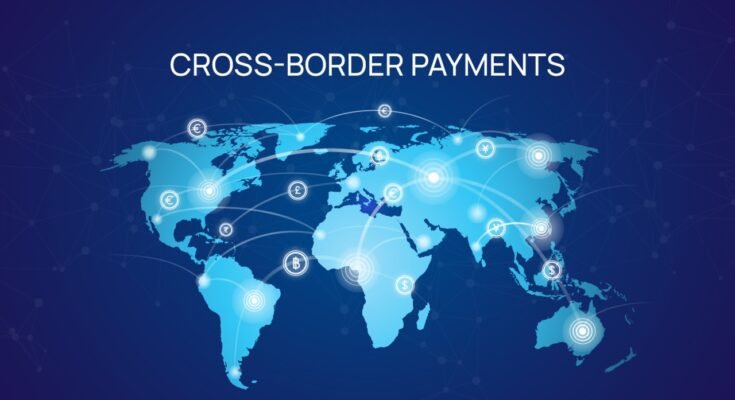Expanding beyond India’s borders is no longer just a goal for modern businesses—it’s becoming a necessity. Whether you run a fast-growing D2C brand, a SaaS platform, or an export business, the global market is full of opportunity. But there’s one common challenge that keeps coming up—how to manage international business payments smoothly, securely, and cost-effectively.
The friction is real. Indian businesses often struggle with inconsistent settlements, hidden charges, and compliance hurdles that make scaling overseas harder than it should be. Cross-Border Business Transactions are still layered with complexity, even for digital-first brands.
This blog unpacks the core issues behind these challenges and explores how Indian merchants can overcome them with the right solutions in place.
Why Cross-Border Payments Still Feel So Complicated
Going global comes with its set of roadblocks. Many Indian businesses, especially those starting out or scaling for the first time, face avoidable setbacks when it comes to handling foreign transactions.
According to the World Bank’s Remittance Prices Worldwide initiative, cross-border payment costs and complexity remain significant barriers for businesses, while the Bank for International Settlements highlights that regulatory and technical innovations are central to improving global payment efficiency.
Currency Conversions and Unpredictable Charges
Banks and payment partners often add fees on top of fees—exchange rates, intermediary bank charges, and conversion losses. These small costs add up and hurt profit margins.
More importantly, businesses rarely have full visibility into what they’ll actually receive after deductions. This uncertainty can create operational issues, especially for small teams working with tight cash flow cycles.
Compliance and Regulatory Maze
Navigating international regulations can feel overwhelming. Many Indian businesses are unsure of whether their current payment infrastructure aligns with RBI guidelines or global standards.
Each new market introduces a new layer of compliance—data localization, tax reporting, and AML checks—which makes the payment flow more fragmented.
Poor Customer Experience
A payment failure at checkout isn’t just a technical glitch—it’s a broken experience. Global customers expect their preferred local payment methods and want clarity at every stage.
Without local currency support and optimized routing, transactions may get declined. This directly affects trust and reduces chances of repeat business.
What Indian Businesses Really Need in a Cross-Border Payment Setup
Understanding what’s missing is only half the battle. The next step is knowing what to look for in a reliable payment partner that supports international growth.
Faster, Transparent Transactions
Businesses want to receive payments quickly, without guesswork or delay. Transparent fee structures and settlement timelines are key to building operational confidence.
Localized Payment Experiences for Global Customers
To build trust with overseas buyers, merchants must offer localized currency options, familiar checkout flows, and region-specific support.
For example:
- A US customer should be able to pay in USD without needing to convert.
- A Southeast Asian buyer should not face unexpected declines due to unsupported card types.
How PayGlocal Simplifies Cross-Border Business Transactions
Instead of relying on multiple providers or managing layers of payment integrations, Indian merchants can simplify their operations with a unified platform. This is where PayGlocal fits in.
Multi-Currency Acceptance on a Single Platform
PayGlocal allows businesses to accept international business payments just like domestic ones. No need for separate integrations for each region.
Merchants can accept payments in USD, EUR, GBP, and other major currencies, giving customers the flexibility they expect—without complicating internal operations.
Smart Routing with Fraud and Risk Checks
Failed payments and chargebacks can hurt a brand’s reputation. PayGlocal minimizes these issues through intelligent payment routing. Transactions are automatically routed through the optimal path to ensure better success rates.
The built-in risk engine also flags and blocks suspicious activity, reducing the need for manual monitoring.
Transparent Settlements with No Guesswork
One of the biggest pain points for Indian businesses is unpredictable settlements. With PayGlocal, settlements are clear and pre-informed. Businesses know exactly how much they will receive and when.
This helps finance teams manage cash flow better and improves internal forecasting.
Built-In Compliance Framework
PayGlocal is built with Indian regulatory norms in mind. Whether it’s RBI compliance, tax reporting, or data handling, businesses don’t need to manage these on their own.
The platform is also updated continuously to keep up with global compliance shifts—so Indian merchants are always operating within legal boundaries.
Real-World Use Cases: Indian Businesses Going Global with Confidence
A D2C Brand Expanding to the US and Europe
An Indian skincare brand with a strong domestic following wanted to expand to global markets. They faced repeated challenges with currency mismatch, cart drop-offs, and unclear settlements.
By integrating with PayGlocal, they:
- Accepted payments in USD and EUR without separate merchant accounts
- Saw fewer payment failures at checkout
- Reduced cart abandonment by offering local currency pricing
A SaaS Platform Serving Southeast Asian Clients
A B2B SaaS startup serving clients across Singapore, Indonesia, and the Philippines was facing fragmented collection methods. Clients preferred local payment systems that the business couldn’t support.
With PayGlocal, the platform offered multi-currency billing and faster collections—reducing payment cycles from 21 days to under 7.
Why PayGlocal Is Designed for Indian Businesses First
Unlike global providers that take a one-size-fits-all approach, PayGlocal understands the unique challenges Indian businesses face.
For example:
- Domestic banking integrations
- Localized documentation support
- RBI-compliant payout processes
This local-first thinking makes the platform more relevant, especially for businesses that are exploring cross-border sales for the first time.
PayGlocal isn’t just solving technical problems—it’s removing business barriers that slow down global growth.
Getting Started with PayGlocal: What Onboarding Looks Like
Integration doesn’t need to be complex or resource-heavy. PayGlocal offers:
- API-based integration for tech teams
- Plug-and-play options for no-code or low-code platforms
The onboarding team supports merchants from setup to live operations, making sure that everything from currency settings to settlement timelines is handled correctly.
Even businesses without dedicated finance or tech teams can get started without hurdles.
Final Thoughts: The Way Forward for International Business Payments
For Indian businesses, managing international business payments shouldn’t feel like navigating a maze.
By simplifying operations, improving trust at checkout, and removing regulatory complexity, platforms like PayGlocal allow businesses to focus on what really matters—growth, customer experience, and global reach.
As digital commerce continues to grow, the ability to handle cross-border transactions with ease will define who scales and who stalls.




